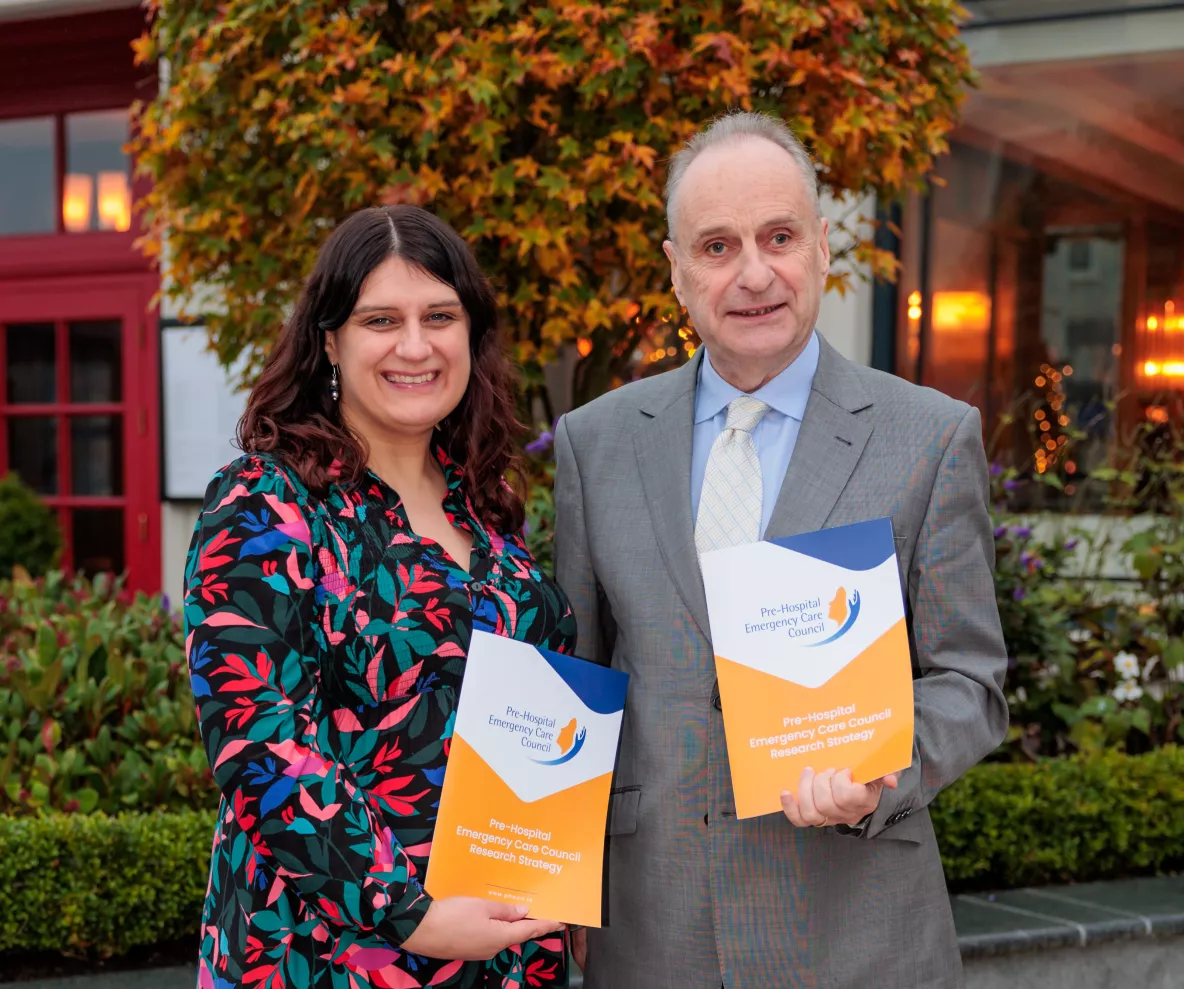

A University of Limerick academic has launched a new research strategy for paramedicine in Ireland.
Dr Niamh Cummins, Associate Professor in Public Health in the School of Medicine at UL was the national lead for the research strategy which was developed collaboratively with an international team of research experts in the field.
The strategy aims to increase research capacity in order to improve patient outcomes in patients cared for by the Ambulance Services and was launched recently at the Pre-hospital Emergency Care Council (PHECC) Research Conference in Maynooth.
PHECC is the regulator for paramedicine in Ireland and commissioned the strategy with the ethos that quality research strengthens and underpins the understanding and practice of paramedicine and pre-hospital emergency care.
Dr Cummins, who is also an Adjunct Senior Lecturer in Paramedicine at Monash University and chairs the Irish Paramedicine Education and Research Network (IPERN), was a keynote speaker at the conference and launched the research strategy in partnership with Pat Fleming, Chair of the PHECC Research Committee.
During her presentation Dr Cummins highlighted the importance of impactful research in paramedicine.
“We know that health services benefit from research through improvements in patient outcomes, however, research can be uniquely challenging in the unpredictable out-of-hospital environment. This means it’s vitally important that the development of new models of integrated, patient-centred care in this complex setting are research-informed and data-driven,” said Dr Cummins.
Paramedicine in Ireland is dynamically evolving and now includes alternative care pathways and specialist roles such as Community Paramedics. The strategy is the culmination of almost three years of work by an international team of researchers from Ireland, Australia, Canada and the UK.
The diverse team ensured that the strategy incorporated experiences and learnings from work completed in other jurisdictions. The research has already resulted in several journal publications and conference presentations nationally and internationally with further work forthcoming.
Associate Professor Kelly-Ann Bowles, Head of Department of Paramedicine at Monash University, Australia was the international project lead and said: “It was such a privilege to work with such a renowned international team as we made recommendations for a pre-hospital research strategy for Ireland. It was also important to include frontline paramedics, patient representatives and clinical leaders in the work, as ultimately these are the people who will directly benefit from and uphold the strategy. This is all about improving pre-hospital care in Ireland, and the breadth of the strategy will assist in the success and sustainability of the profession.”
The conference heard that a coherent national strategy informed by all key stakeholders provides a basis for knowledge activities between the academic community and research users based in clinical, educational and policy settings.
At the conference the new research strategy was warmly received by the delegates which included clinicians from paramedicine, emergency medicine, nursing, general practice and the allied health professions, in addition to first responders from the wider emergency services including the police and fire service.
Dr Cummins concluded by noting: “This strategy aims to build research capacity and an evidence-based body of knowledge which will serve to strengthen our ambulance services and ultimately improve patient care in our communities.”
Led by Principal Investigators Cummins and Bowles, members of the Research Team included; Associate Professor Alan Batt (Queens University, Canada), Professor Julia Williams (University of Hertfordshire, UK), Michelle O’Toole (Royal College of Surgeons in Ireland), Dr Shane Knox (National Ambulance Service and University College Cork), Liam Hemingway (Monash University), Professor Brett Williams (Monash University) and Brian Doyle (Royal College of Surgeons in Ireland).
Contributions from UL faculty and students included Dr Christina Fitzgerald (School of Allied Health), Dr Ann Marie Bright (Department of Nursing and Midwifery), Una Cronin (School of Design) and Dr Ozioma Uzoukwu (School of Medicine).
The Research Team were also strongly supported in developing the strategy by Brendan Cawley, Programme Manager for Clinical Information, Education, Examinations and Research at PHECC, MRay Carney, Clinical Programme Manager and all of the Research Committee at PHECC led by Pat Fleming.
